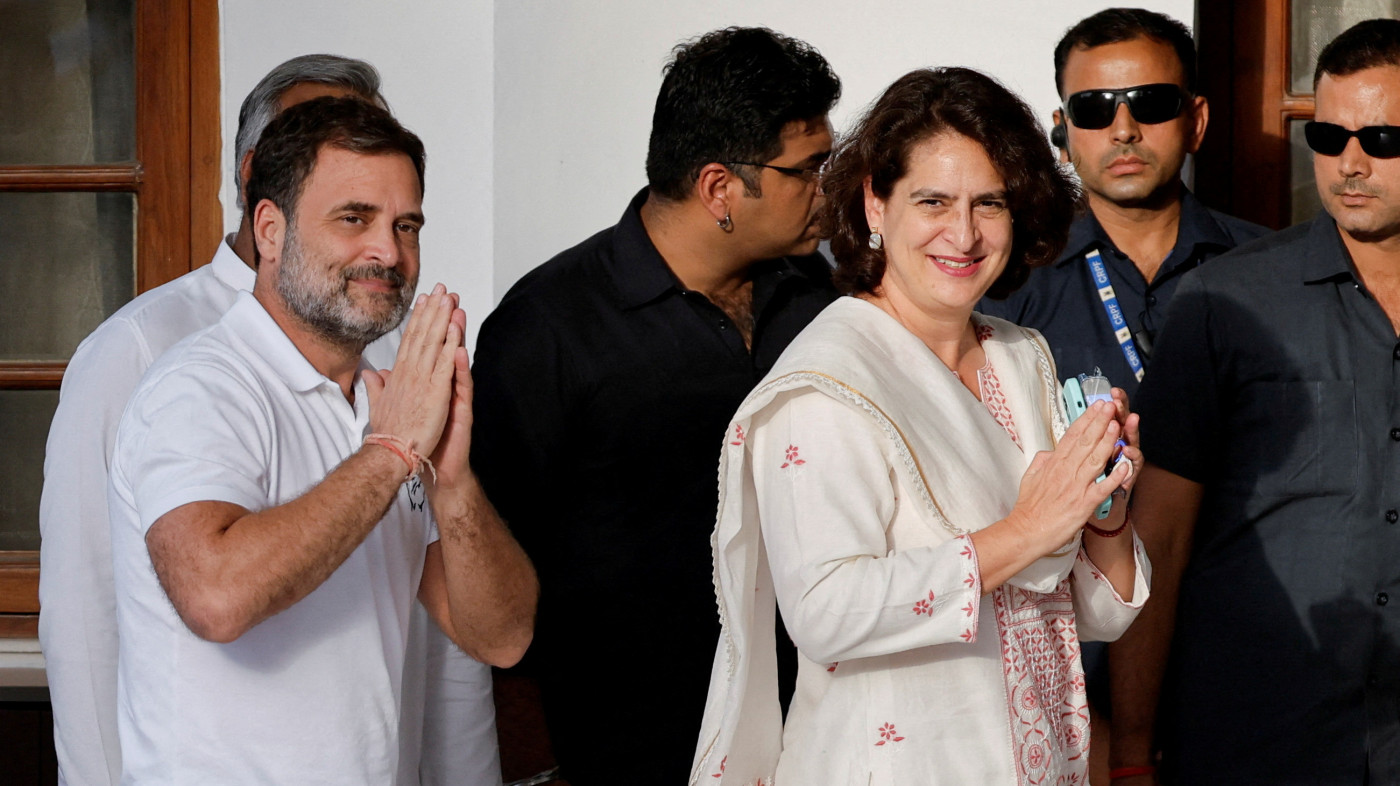Priyanka Gandhi, a prominent figure in India’s Nehru-Gandhi political dynasty and sister of Rahul Gandhi, is poised to make her electoral debut in the upcoming by-election for the Wayanad constituency in Kerala. This move marks the culmination of years of anticipation among her supporters and political observers alike, as Priyanka Gandhi has long been seen as a potentially formidable force within the Congress party.
The Nehru-Gandhi family holds a storied legacy in Indian politics, with Priyanka Gandhi’s grandmother, Indira Gandhi, and great-grandfather, Jawaharlal Nehru, both serving as Prime Ministers. Her entry into electoral politics signifies a continuation of this lineage and has sparked significant interest due to her family’s historical influence and her own political acumen.
Priyanka Gandhi’s decision to contest from Wayanad comes as her brother Rahul Gandhi, who currently represents the constituency, prepares to vacate the seat in accordance with Indian law, which limits lawmakers to holding only one parliamentary constituency. Rahul Gandhi expressed gratitude to the people of Wayanad for their support, paving the way for Priyanka’s candidacy.

Despite her lack of prior electoral experience, Priyanka Gandhi has been deeply involved in Congress party campaigns for decades, supporting her mother, Sonia Gandhi, and later her brother, Rahul. She officially entered active politics as the Congress’ general secretary in 2019 and has since played a crucial role in strategizing and campaigning, particularly in Uttar Pradesh and other key states.
Observers and political analysts have noted Priyanka Gandhi’s reputed political astuteness and her ability to connect with voters, often drawing comparisons to her grandmother, Indira Gandhi. Her leadership during key campaigns has been praised despite mixed electoral outcomes for the Congress party under her tenure.
The upcoming by-election in Wayanad is expected to be closely watched, not only for its impact on Congress’ political fortunes but also for the broader implications of Priyanka Gandhi’s emergence as a central figure in Indian politics. Her candidacy has sparked both praise and criticism, with supporters lauding her potential to rejuvenate the Congress party, while critics decry what they perceive as entrenched dynastic politics.
Priyanka Gandhi’s decision to contest the Wayanad seat marks a significant moment in Indian politics, as she steps into a more direct electoral role after years of strategic involvement behind the scenes. The outcome of this by-election will not only shape her political trajectory but also influence the dynamics within the Congress party and the broader political landscape of India.


